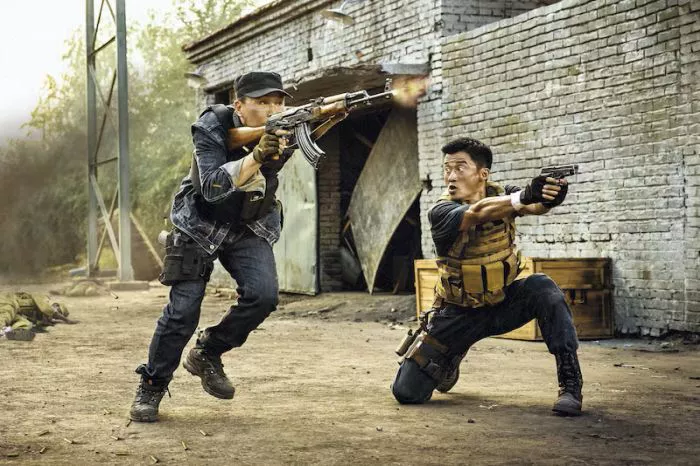The reception of “Wolf Warrior 2” by American critics presents an interesting case study in the context of cultural differences, cinematic preferences, and the evolving landscape of international film criticism. While the film achieved immense popularity in China and other markets, its reception among American critics was more mixed, with some reviews highlighting perceived shortcomings in storytelling, characterization, and thematic depth. Let’s delve into the reasons why “Wolf Warrior 2” received lower reviews from American critics compared to its reception in other regions.
Cultural Context and Nationalistic Themes
One of the primary factors influencing the reception of “Wolf Warrior 2” by American critics is its overt emphasis on nationalistic themes and patriotic sentiment. The film portrays a Chinese protagonist as a heroic figure intervening in an African conflict to rescue Chinese nationals, showcasing themes of Chinese strength and moral superiority. American critics, accustomed to a different cultural and cinematic context, may have found the film’s portrayal of patriotism and national identity to be overly explicit or jingoistic.
In the United States, where cinematic narratives often emphasize individualism, anti-hero protagonists, and moral ambiguity, the unabashed patriotism of “Wolf Warrior 2” may have been perceived as simplistic or propagandistic. American critics are likely to evaluate films based on their narrative complexity, character development, and thematic nuance, which may not align with the overtly nationalistic tone of “Wolf Warrior 2.”
Action Genre Conventions and Execution
Another aspect that American critics may have considered in their reviews of “Wolf Warrior 2” is the execution of its action genre conventions. While the film delivers impressive action sequences and intense combat scenes, some critics may have felt that the narrative relied too heavily on spectacle at the expense of character depth and storytelling. In the United States, action films are often judged based on their ability to balance thrilling set pieces with compelling characters and thematic substance.
Critics may have compared “Wolf Warrior 2” to Hollywood action blockbusters and found its storytelling approach to be less sophisticated or innovative. The film’s focus on physical prowess and martial heroics, while appealing to certain audiences, may have been deemed formulaic or predictable by critics seeking more nuanced storytelling and character-driven narratives.
Translation and Cultural Adaptation
Cultural differences in humor, dialogue, and narrative style can also contribute to divergent critical receptions of foreign films like “Wolf Warrior 2” in American markets. The film’s dialogue, which may resonate with Chinese audiences, could appear stilted or melodramatic in English translation, affecting the overall viewing experience for American critics.
Cultural nuances and references that are familiar to Chinese viewers may be lost in translation, leading to misunderstandings or misinterpretations of the film’s intended message. Subtle cultural cues, humor, and contextual references may not resonate with American critics unfamiliar with Chinese cinema or societal norms, impacting their assessment of the film’s quality and impact.
Political and Geopolitical Context
The geopolitical context surrounding “Wolf Warrior 2,” particularly in relation to China’s growing influence on the global stage, may have also influenced American critics’ reception of the film. As tensions between China and the United States persist in various domains, including trade, technology, and geopolitics, critics may approach Chinese cultural productions with heightened scrutiny and skepticism.
Critics may be inclined to analyze “Wolf Warrior 2” through a geopolitical lens, questioning the film’s portrayal of Chinese foreign policy and its implications for international relations. This broader context could contribute to a more critical assessment of the film’s thematic messaging and ideological underpinnings.
Conclusion
The reception of “Wolf Warrior 2” by American critics reflects broader trends in international film criticism and cultural reception. Differences in cinematic preferences, narrative conventions, and cultural context shape the way foreign films are perceived and evaluated in different markets. While the film resonated strongly with Chinese audiences due to its patriotic themes and action-packed spectacle, its reception among American critics highlights the complexities of cross-cultural cinematic translation and the divergent expectations of global audiences.
Ultimately, the reception of “Wolf Warrior 2” by American critics underscores the subjective nature of film criticism and the importance of considering cultural context, narrative conventions, and thematic depth when evaluating international cinema. As Chinese cinema continues to gain prominence on the global stage, dialogue and exchange between diverse cinematic traditions can enrich critical discourse and broaden audiences’ appreciation for cultural diversity in filmmaking.
Related Topics:
Movie Review – Wolf Warriors 2

